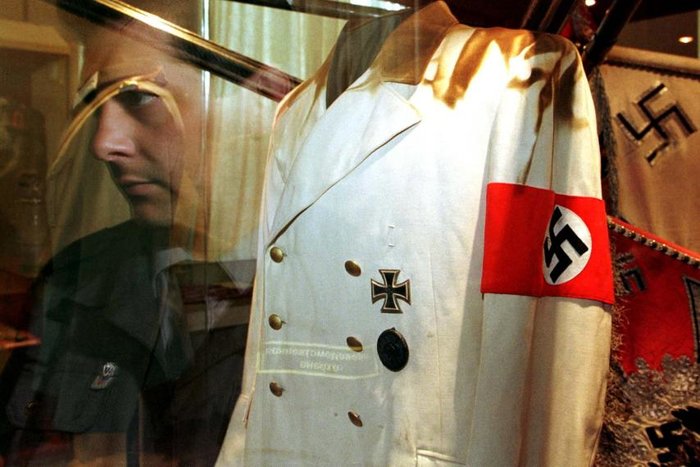Guardian reveals how the Associated Press cooperated with the Nazi party

According to Scharnberg, who is a historian at Germany’s Martin Luther University Halle-Wittenberg, the AP’s relationship with the Nazi Party meant the Hitler regime could “portray a war of extermination as a conventional war.”
Try Newsweek for only $1.25 per week
The reason that the New York-based AP, which was formed in May 1846, was the only Western news outlet in Germany that remained open during Hitler’s regime now seem to be clear. According to The Guardian, which was banned from Germany in the mid-1930s, the AP signed up to the Schriftleitergesetz, otherwise known as the “editor’s law,” which meant the agency promised not to publish anything “calculated to weaken the strength of the Reich abroad or at home,” The Guardian reports.
Under the law, the AP had to hire reporters and photographers who belonged to the Nazi Party’s division of propaganda. Franz Roth, a photographer who worked for the AP during the 1930s, was a member of the SS paramilitary unit’s propaganda arm. The Guardian says the AP has removed Roth’s photos from its website, although thumbnails of the images are still visible because of “software issues.”
Photographs taken by the AP were also used for Nazi propaganda, according to The Guardian. In one of the more troubling examples, a Nazi booklet titled “The Jews in the USA” used on its front cover an AP photograph of New York’s Mayor Fiorello LaGuardia eating with his hands.
The AP released a statement on Wednesday, saying it shared “a large amount of material from its Corporate Archives, including oral histories done by World War II era employees,” with Scharnberg at her request.
“Her recently published report, based also on other source material outside AP, describes both individuals and their activities before and during the war that were unknown to AP,” the news agency said in its statement. “As a result, AP has been reviewing documents and other files in and beyond AP Corporate Archives, in the U.S. and Europe, to further our understanding of the period.”
Decades after the end of World War II, the AP has been accused of once again entering into an agreement with an authoritarian regime. In 2014, NK News, a website that tracks developments and stories in North Korea, said top executives at the AP, which has a bureau in Pyongyang, agreed in 2011 to distribute North Korean state media propaganda in exchange for access.
A spokesperson for the AP denied to The Guardian that the agency is censored by the North Korean government.















































